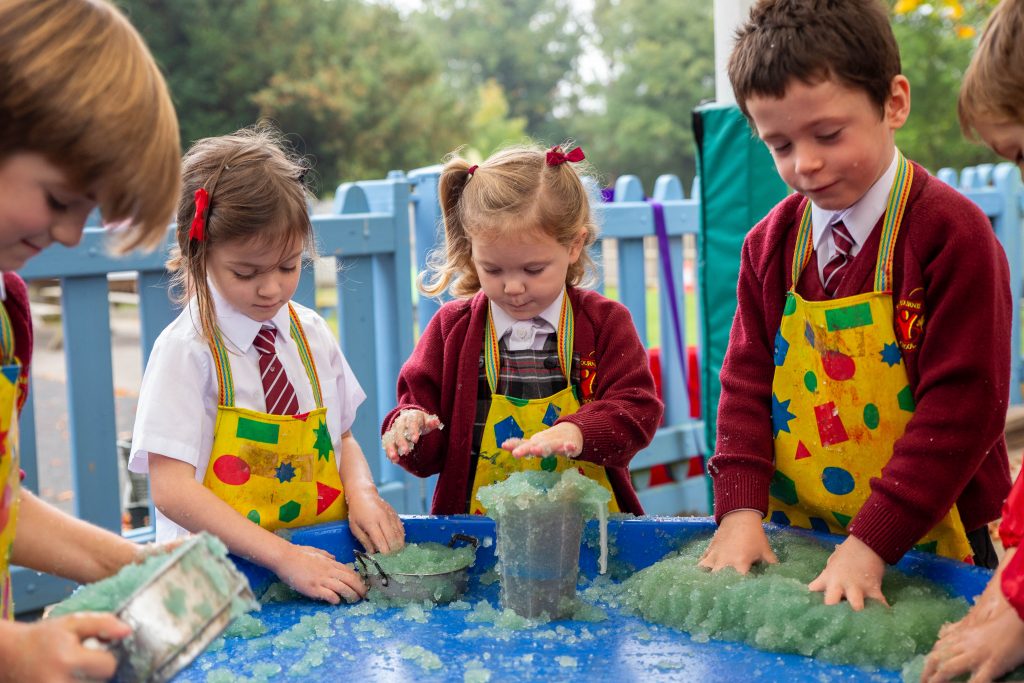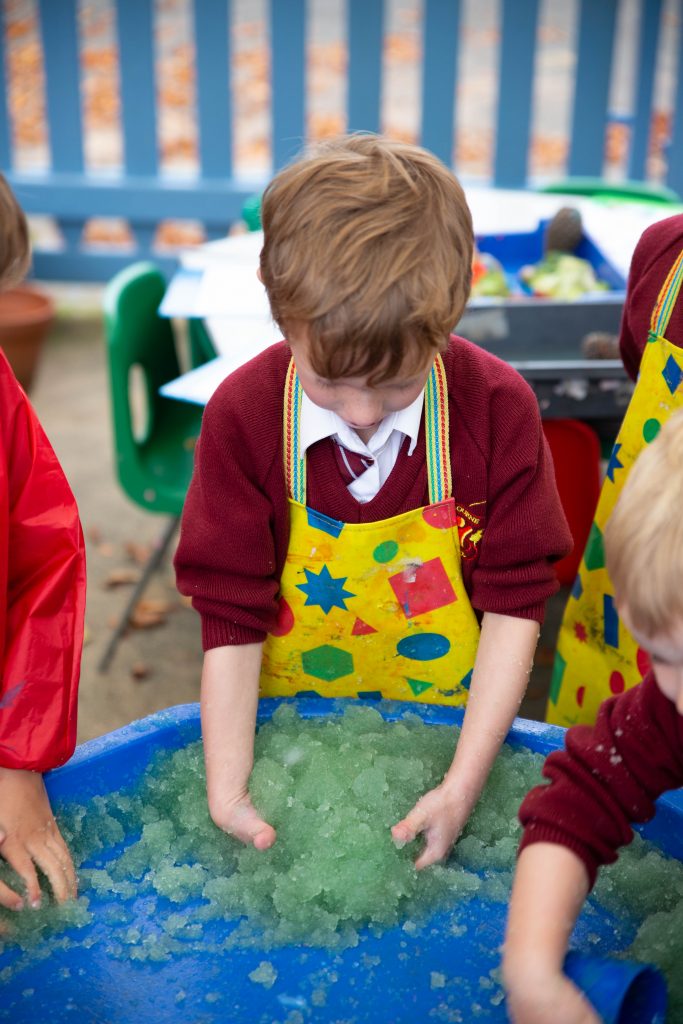Tinley Class
Each child spends two years in Tinley class, where we follow the Early Years Foundation Stage Curriculum in Reception and transition into the National Curriculum in Year 1. Our aim in Tinley class is to provide a welcoming, caring, secure and organised working environment, so that each child may develop fully, and be well prepared for Year 2 and beyond. Our approach is a blend of topic and subject-based learning, with a strong emphasis placed on the basic skills of literacy, including phonics, and numeracy. We place great importance on practical, hands-on experiences and children are free to use our outdoor space whenever possible.
In Reception and Key Stage 1, Reading is taught initially by the teaching of phonics. All children take part in a daily phonics session using the Success for All programme (Fisher Family Trust). The children are taught to associate sounds with corresponding letters of the alphabet and then use this knowledge to blend sounds together to read simple words. As well as reading and saying these sounds, they also learn how to write them. Shared and individual reading activities are also part of each day’s learning with shared readers aligned very carefully with phonics progression.
Initially, Reception children take home ‘Story Sacks’ which are designed to be shared with an adult. The sacks contain a book and other prompts to introduce children to the joys of reading. As children become more confident in their reading, they move on to a banded scheme which consists of a variety of levelled books carefully aligned with the phonics and reading that is taking place in school. Individual reading books, from the school library or the Success for All portal, are used to practise skills that have been learnt in school and to encourage a love of reading. This also provides parents with the opportunity to be active participants in their child’s learning. Books are changed on a regular basis with the expectation that each child will read at home with an adult on a daily basis, recording their progress in personal reading records.
Early Numeracy is developed by giving children a variety of opportunities to count, initially to ten, in a variety of real-life scenarios. Understanding of shape and space is developed alongside opportunities to measure and collect and order information from their environment. As children progress, addition and subtraction are taught, and problem-solving skills are developed through a range of small group and independent activities. The use of apparatus and equipment is central to mathematics and helps children to visualise and apply their learning.
Science, History and Geography are taught largely through topics. The aim of this topic-based curriculum is to capture the imagination and enthusiasm of the child, an effective foundation for learning. Ample opportunities are provided for practical activities, allowing the child to enjoy Art, DT, Computing, Music, RE, PE and Drama to the full. We place a strong emphasis on the environment and outside space, taking great pride in our school and the local area, planning enrichment opportunities whenever possible.

